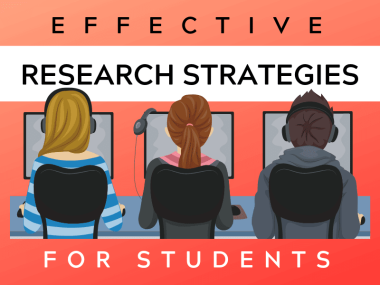Today, we’re going to talk about something that can seriously level up your academic journey, how to use your university library and online databases like a pro. Whether you’re an undergraduate writing your first essay, or a postgraduate preparing a thesis, this is for you.
Ready? Let’s dive in together.
What Is a University Library, and Why Should You Care?
Let me ask you, have you ever walked past your campus library without really thinking much of it? Most students do.
But here’s the truth: Your university library is not just a building full of books, it’s your academic toolbox. Inside, you’ll find:
- Textbooks and research materials
- Academic journals
- Theses and dissertations
- E-books and e-journals
- Research databases
- And yes, super helpful librarians!
Libraries connect you with trustworthy, peer-reviewed information, the kind you need to write high-quality academic work.
And the best part? You don’t have to be physically present. With your school login, you can access most materials online, from your phone or laptop, anywhere.
The Power of Digital Library Tools
Now, let’s talk about what’s happening behind the scenes. Modern university libraries are equipped with digital tools that allow you to:
- Download academic articles
- Access e-books and videos
- Search by keyword or topic
- Save and organize your research
- Manage citations (which we’ll talk about later)
Let me give you some real examples of online databases you may already have access to:
| Database | What It Offers | Access |
|---|---|---|
| JSTOR | Journals, articles | School login (subscription) |
| ProQuest | Theses, dissertations | School login (subscription) |
| Google Scholar | Free scholarly search engine | Free |
So if you’ve been using only Google Search for research, it’s time to upgrade. These platforms offer higher quality, academic-grade resources that your lecturers expect you to use.
Navigating the Library Website
Alright, how do you actually use your university’s digital library?
Let me break it down:
Step 1: Find the Search Bar
When you open the library website, look for a search box. This is where you type in your topic, book title, article name, or author.
Example: You’re researching climate change in Nigeria. Just type that into the search bar.
Step 2: Explore the Resources
Once you search, you’ll see options like:
- Full-text journal articles
- PDF books
- Conference papers
- Research videos
Step 3: Use Filters
Want only recent publications? Or only journal articles?
Use the filters on the left or top of the page to narrow your search results.
4. Smart Search Techniques
Let me teach you a quick trick. When searching in databases like JSTOR or ProQuest, don’t just type anything randomly. Use Boolean operators to refine your results.
Here’s how:
- AND – combines two ideas “Gender AND Education”
- OR – shows either topic “Adolescents OR Teenagers”
- NOT – removes unwanted terms “Pollution NOT Air”
This makes your search results more relevant and focused.
5. Organize Your Research Like a Pro
Now, let’s say you’ve found 10 great articles. What do you do next? Don’t just download them and forget where you put them. Use citation management tools like:
- Zotero
- Mendeley
- EndNote
These tools help you:
- Save articles
- Add notes
- Automatically create citations in APA, MLA, Chicago, etc.
This becomes super helpful when you’re writing long assignments or your final-year project.
6. E-Books and E-Journals: Your New Best Friends
Sometimes you don’t want to carry heavy textbooks or queue in the library. Good news: Most university libraries give you free access to thousands of e-books and e-journals.
Here’s how to find them:
- Go to the library website.
- Search for your topic.
- Filter results by “e-book” or “e-journal”.
- Click “Read Online” or “Download PDF”.
Simple, right? Use these especially during exams or when doing background reading for an assignment.
7. Work With Librarians
Now, many students ignore librarians. Don’t be one of them. Librarians are trained professionals who:
- Know the databases inside out
- Can help you find specific materials
- Offer one-on-one consultations
- Teach you how to cite sources properly
Visit your university library or email them. You can even book sessions to get research help.
8. Avoiding Plagiarism: Learn to Cite
Let’s talk about something very serious: Plagiarism.
Copying and pasting from the internet without proper citation can get you penalized—or worse, expelled. So how do you avoid it?
- Always cite your sources using APA, MLA, or Chicago.
- Use citation tools like Zotero or EndNote.
- Ask librarians or lecturers if you’re not sure.
Citing properly shows academic honesty and boosts your credibility.
9. Stay Updated on New Resources
Finally, don’t miss out on the latest tools your library offers.
Do this:
- Subscribe to your library’s newsletter
- Attend training sessions or webinars
- Follow your library on social media (yes, some are on Instagram or X!)
These updates can introduce you to:
- New databases
- Study tools
- Workshops on citation, research writing, etc.
FAQs
Q: Can I access library tools from home?
Yes! Most resources are available with your school login.
Q: Which database is best for Nigerian research?
JSTOR, ProQuest, and Google Scholar are highly useful and accessible.
Q: What if I can’t find what I need?
Ask a librarian or use interlibrary loan options.
Q: How do I cite correctly?
Use tools like Zotero or check the citation style guide for your course.
Conclusion
Using your university library and online databases is not hard, it just takes a little practice and curiosity. Once you start:
- You’ll find better research materials
- You’ll write stronger essays
- You’ll save time and reduce stress
So go ahead, log into your university library portal today. Try a database. Search a topic. Ask a librarian. Use a citation tool. Before you know it, you’ll be researching like a true academic pro.


